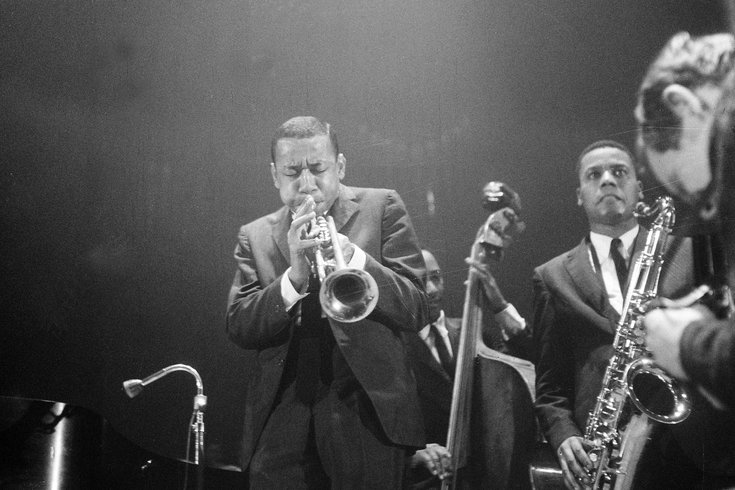
April 16, 2024
 Public domain/Dutch National Archives
Public domain/Dutch National Archives
Lee Morgan, pictured above playing the trumpet, performed with Dizzy Gillespie and Billie Holiday while he was still a teenager in Philadelphia. His best-known album is now in the National Recording Registry.
The Library of Congress selected 25 albums and singles Tuesday for its national recording registry, where they will be preserved for future generations. Among the honorees was "The Sidewinder," the 1964 jazz album by Philadelphia's own Lee Morgan.
His six-track collection, which the library called a "blues masterpiece," was chosen for "cultural, historical or aesthetic importance." The Library of Congress adds 25 new titles each year to the National Recording Registry, drawing on advice from a board and members of the public, who can nominate music for consideration. For 2024, the public sent in a record 2,899 nominations.
Along with "The Sidewinder," the latest crop of registry titles includes Bill Withers' "Ain't No Sunshine," Gene Autry's "Rudolph the Red-Nosed Reindeer," Blondie's 1978 album "Parallel Lines," and the Notorious B.I.G.'s 1994 album "Ready to Die." A Prohibition-era polka and Lily Tomlin's first comedy album also made the cut.
Only one of the the new honorees, however, has roots in Philadelphia. Morgan was considered a pioneer of hard bop, a subgenre of jazz with gospel and blues influences that grew out of bebop. As the library notes, "The Sidewinder" was such a hit that it "almost singlehandedly" saved Morgan's label Blue Note from bankruptcy in the mid-60s. Its title track hit No. 81 on the Billboard Hot 100 and appeared in a Chrysler commercial.
Morgan first picked up a trumpet as a boy in Tioga, and honed his craft at the Jules E. Mastbaum High School's music program. His older sister Ernestine nurtured his love of jazz by taking him to the former Earle Theatre at 11th and Market streets to see greats like Louis Armstrong and Cab Calloway. He later became a regular at a jazz workshop at Heritage House, a community center that is now the Freedom Theatre at 1346 N. Broad Street.
The budding musician hit it big by scoring a last-minute slot with Art Blakey and the Jazz Messengers for a July 1956 engagement in Philadelphia, which led to invitation later that summer from Dizzy Gillespie to perform in his Academy of Music concert with Billie Holiday. Morgan was recording albums later that year and would continue to release music for the next 15 years. His career and life ended suddenly in 1972, when his common-law wife Helen shot him during an argument inside Slugs' Saloon in Manhattan.
The Library of Congress's recognition of Morgan arrives just two weeks ahead of another major honor. On April 30, members of Morgan's family will help unveil his Pennsylvania historical marker. The blue post will be installed at 52nd and Chancellor streets, the location of the now-defunct jazz club where Morgan played his last Philadelphia show.
Follow Kristin & PhillyVoice on Twitter: @kristin_hunt
| @thePhillyVoice
Like us on Facebook: PhillyVoice
Have a news tip? Let us know.